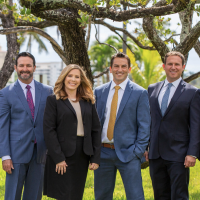Privileges: When Defamatory Statements are OK

Defamation is the general, broad term for both libel and slander, with the former representing written words, and the former, spoken words. But did you know there are times when you may defame someone, but you cannot be sued? These are called privileges, and there are times when some level of defamation is considered protected and immune from liability.
Defamation Defenses
Privileges are different from defenses to defamation. Defenses to libel or slander may include things like:
- The defamatory statement wasn’t ever actually said
- The defamatory statement, is an opinion, not an asserted fact
- The asserted fact is, in fact, true
- Nobody heard or read the defamatory statement (that is, there was no publication of the statement)
These defenses can be asserted in any defamation case, anytime. If they are proven, there can be no liability for defamation.
Defamation Privileges
But privileges to defamation are different. Privileges are a way of saying, “I met all the requirements for defamation, but I was allowed to do it.” So when is defamation actually OK and legal?
Reporting Illegal Activity
One area is where you have a legal obligation to report information, or the defamatory statement is made to avoid criminal activity. So, if you had a good faith belief that your neighbor was going to rob a bank, and you reported it to the police, you would be protected from liability for defamation.
Another example is if you suspected child abuse, and you reported someone you believed may be the abuser. If you turned out to be wrong you would be safe from liability for defamation.
Public Policy
Some statements may be protected under public policy; in general, if you had a right, obligation, or duty to say something about someone, you would be privileged. So, for example, if you believed your neighbor was violating the homeowners association rules, you could report that to the association, and if you were wrong, you could not be sued for defamation.
Job references also are generally protected. If you were to tell an employee’s future employee something about an employee in a reference letter that ended up being inaccurate, you could not be sued.
Any type of public reporting, such as online or on the news, is protected, so long as it is actually a news report, or for the purpose of dissemination of public information.
Public Figures
Although technically not a privilege, you can say defamatory statements about public figures, so long as you do not do so with actual intent, or malice. Public figures aren’t just celebrities–anybody in the public eye, even just locally, may qualify as a public figure.
Good Faith
All of these privileges do have one thing in common, and one caveat: the person making the defamatory statement, who is asserting the privilege, must have made the statement in good faith. Someone cannot abuse these privileges by purposely and maliciously making knowingly false statements, and then seek to hide from liability by claiming privilege.
Call the West Palm Beach business litigation lawyers at Pike & Lustig today if you have questions about defamation, libel, or slander.
Sources:
law.cornell.edu/wex/absolute_privilege
nolo.com/legal-encyclopedia/privileges-defenses-defamation-cases.html#:~:text=Absolute%20privilege%20means%20that%20the,immune%20from%20a%20defamation%20lawsuit



